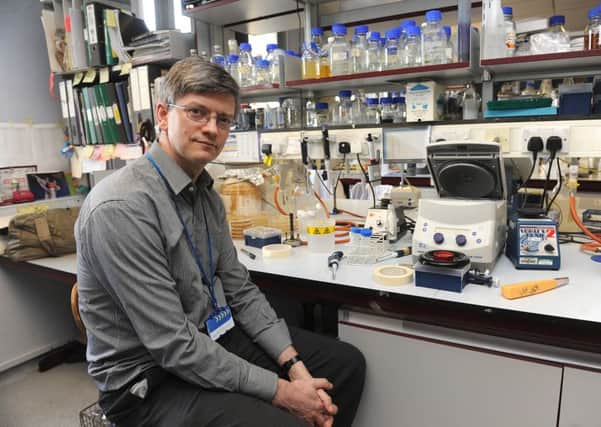Sheffield scientists get immune system funding boost


The SHIELD Consortium led by the University of Sheffield with partners from Edinburgh, Birmingham and Newcastle universities, will look at developing therapies within the body to kill harmful bacteria.
Current work has focused on developing new antibiotics that fight bacteria but an increasing number of harmful bugs are becoming resistant to these types of drugs.
Advertisement
Hide AdAdvertisement
Hide AdInstead, the team want to increase the body’s own response in combating these bacteria by enhancing the capacity of phagocytes - a special type of white blood cell that eat and kill bacteria. The team aim to enhance how these cells kill bacteria while limiting the generation of harmful inflammation.
David Dockrell, professor of infectious diseases at the University of Sheffield said: “The human body regularly fights bacteria without any problems.
“This project seeks to increase our understanding of exactly how these immune cells work so that we can maximise the ability of the cells to not only destroy harmful bacteria but also limit the damage to healthy tissue caused by excessive inflammation.”
“If we can identify what genes within these cells are the most important in the optimal killing of bacteria, it could lead to medicines being developed that can re-engage and enhance this vital process when it fails.”
The funding is part of a £9.5m funding package announced today by the Medical Research Council as part of a cross-council initiative to tackle antimicrobial resistance.